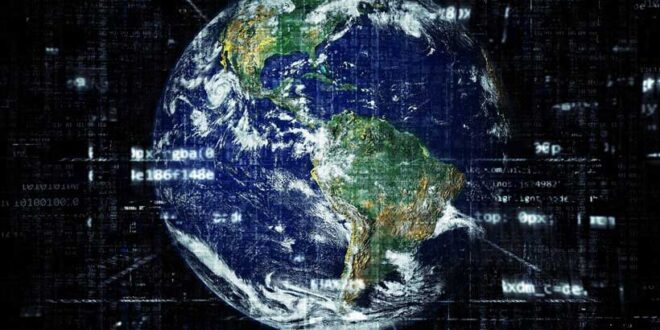The Multilateral world has been attempting to evolve for some time now. From Reformed to Effective Multilateralism, its struggles to find the balance between consensus and efficiency has sometimes led towards more questions than answers.
How much of a dent can one find in the current stalemate in multilateral forums such as the Conference on Disarmament and ASEAN Regional Forum? Can informal government groupings like the G20 and G7 bring this change? Will government-sponsored forums such as the Munich Security Conference offer solutions? Or will the wheel need to be reinvented to bridge the gap between consensus and efficiency?
At a time when walkouts have become the norm at multilateral meetings, the coming together of government, policy, and business leaders may seem like a success. Debates at international forums such as Manama Dialogue reflect pressing issues for the region and States. Almost every country with long-term foreign policy objectives engages in these forums to share perspectives, understand expert analysis, and learn from peers about different governments’ changing or permanent positions. But lack of progress on enforcement of crucial aspects such as climate change has been haunting the multilateral world for long.
Although the G20 leaders achieved an outcome during Indonesia’s Presidency last year, the state of multilateral affairs is in a stalemate. States have typically come out with twobroad options to deal with the situation. While one school of thought argues that conversations must continue towards effectiveness in these forums despite the deadlock, the other school of thought is to ignore the current multilateral forums and design new plurilateral, trilateral, and mini-lateral platforms. Many state actors, exhausted from waiting for a consensus in different multilateral institutions, have chosen to form smaller groupings to address global problems.
However, global problems such as climate change and food insecurity cannot have long-term solutions if constricted to a small group of states. Thus success in these smaller forums is premature, as it would be restricted to specific regions at best. Bringing consensus in smaller groupings, pursuing an exclusionary behavior, and disbarring select states would not bring a successful multilateral verdict. It could further alienate some countries, aggravating the existing multilateral mechanisms as decisions from these mini-laterals cannot be imposed on other multilateral forums.
Thus, in their search for solutions between efficiency and consensus, state actors have yet to succeed in either of the two schools of thought. Smaller groupings bring consensus but are inefficient, and more significant groups focus on consensus but lose efficiency.
Bending the ‘rules’
Another argument against multilateral institutions’ effectiveness is how ‘rules of procedure’ within forums are misused by actors. These rules, set up in a different time and era, do not consider the changing political dynamics and are being nick-picked to suit the needs of some actors. While multilateralism demands that states rise above nationalistic considerations, expecting states to ignore loopholes and not safeguard their national interests seems far-fetched in the current geopolitical environment.
Multilateralism demands that states come together and seek standard solutions for global problems. But security concerns, national discourse, and international norms are in an internal tussle to ensure a 360-degree perspective. And in the see-saw between consensus on the way forward and an efficient way ahead, multilateralism has become the collateral damage.
At a time when nationalistic requirements seem to be overpowering the want for comprehensive multilateral results, progress would be hard to find. If states continue to exploit the prevalent gaps for national goals, the remaining trust in these institutions would also diminish over time- completely dismantling the structures to assist states during crises.
New Mechanisms And Way forward
Nations realize this dilemma. Recent statements by US President Joe Biden, Indian Prime Minister Modi, and the Indian External Affairs Minister S. Jaishankar, acknowledge this deep-rooted problem which exists at multiple levels. African states, too, have become more vocal with the Kenyan representative stating that for real and sustainable results, the UNSC would need to be more balanced by permanent African membership. Think tanks such as SIPRI and the Atlantic Council have alluded to this dilemma as well.
Reform of the multilateral world has been a discussion point for many years. The G4(Brazil, Germany, India, and Japan) has been unsuccessfully seeking reform every year since its inception in 2005. Many from the G4 find the old structures too well-entrenched to accept any change, even as they continue to raise their voice towards reform. A recent attempt was the France and Germany-sponsored Alliance for Multilateralism (2019). It could not build on the momentum after releasing a declaration of principles in 2020.
But there are also some success stories of actions implemented to address the problems facing multilateralism. During its chair-ship of the UN Security Council in 2022, the US added an ‘Explanation of Vote’ or EoV for every veto decision by a P5 member to ensure that the veto is understood as a responsibility. Other examples include the Blue Dot Network launch in November 2019, a certification scheme initiated by Australia, Japan, and the US, to mitigate infrastructure financing risks, and regular use of export control mechanisms via the Wassenaar Arrangement to ensure stronger industry compliance.
Even informal groupings such as the G20 have evolved to reflect the changing geopolitical challenges. The 2022 G20 Bali Summit was a culmination of the 20 most critical economic leaders, but they added a new dimension to their declaration relating to nuclear weapons: “the use or threat of use of nuclear weapons is inadmissible.”
The core tenet of multilateralism is to ensure consensus with a spirit of compromise. UN Secretary-General’s High-Level Advisory Board on Effective Multilateralism has been tasked to come up with concrete suggestions for improving cooperation at the multilateral level to meet the challenges of an unpredictable future. The board builds on ‘Our Common Agenda‘ and most recently, came out with a statement proposing six transformational shifts in global governance that would lead to effective multilateralism.
A signature event of India’s UNSC presidency (2020-22), the New Orientation for Reformed Multilateralism (NORMS), was circulated in November 2022 to address the current challenges and future obstacles that may arise in ensuring effective and consensus-driven multilateralism. It seeks the critical elements of a “new orientation” and ideas on how best to move forward in a time-bound manner.
Parallel evolution of multilateralism is the guest country invitees for informal government groupings such as G7 (India) and G20 (UAE). Guest countries do not have pen-holder status, and their inputs may not hold the same value as permanent members due to the existing ‘rules’ and structures. Nonetheless, these decisions could be considered a part of the small steps to find consensus and efficiency in the multilateral world.
Next Steps
The primary purpose of multilateralism is to find convergence between national concerns of all states. This requires, at the very least, a commitment to enforcing multilateralism. Multilateralists, within state structures and outside of it, are as aware of this and are attempting to come together to fulfil this goal.
The upcoming Summit of the Future (SOTF) has been proposed as a “once-in-a-generation opportunity to reinvigorate global action, recommit to fundamental principles, and further develop the frameworks of multilateralism, so they are fit for the future”.
The road leading up to SOTF in September 2024 is long and tedious in its agenda of bridging the gap between consensus and efficiency for multilateralism. While steps have been taken by State actors within existing multilateral institutions and informal groupings, deliberations at international forums such as the recently concluded Munich Security Conference and the upcoming Raisina Dialogue add to this direction of change. The process of change is complicated, and as actors seek solutions for an efficient and consensus-based multilateral world, the goal may be not just inclusive but also egalitarian.
 Geostrategic Media Political Commentary, Analysis, Security, Defense
Geostrategic Media Political Commentary, Analysis, Security, Defense





